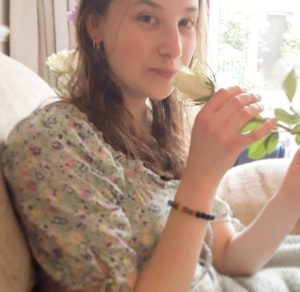Every writer’s heart stops when I utter the words, ‘writer’s block’.
We’re ready to write: we have our tea, our snacks, our pens and we’ve told everyone in the house we’ll be writing upstairs. But then we sit down. We munch on our snacks and stare at the incessant blinking of the cursor on MS Word.
We’re people. We have lives. We’re constantly distracted by our phones, friends, families and work. Everything and everyone demands our attention. It’s easy to get lost in it all and lose focus when it’s time to write.
It took me three years to write my first novel and then less than a year to write my second. That’s because I learned some tricks along the way which I’m going to share to help you out if you’re feeling stuck.
1. Make sure it’s not really something else
‘Writers block’ isn’t always simply being stuck for ideas. Sometimes it’s a mindset. Before you skip to the next step, take a moment to evaluate how you’re feeling about yourself and your writing.
Is the reason you’re feeling ‘blocked’ because you think your writing isn’t very good? Bad writing (and good writing now I think of it) is subjective and yours isn’t as terrible as you think it is, trust me. Be brave and believe in yourself. The rest will fall into place.
Writer’s block can also stem from other struggles, health or be situation related. If you’re struggling with more than your writing and you need to talk to someone, I encourage you to seek support.
2. Start with the characters
Do you have well-rounded characters with extensive backgrounds? Shallow characters don’t live interesting lives. Once you’ve created a remarkable person, they will likely write the story for you.
3. Re-imagine the story
Once you’ve determined the characters aren’t the problem, take a step back. What do you already know about the story? Walk yourself through it from the beginning and trust your instincts on what has to happen next.
If you already know what genre your story can be categorised under, I recommend researching plot structures. They provide general advice in how to shape your story and will probably give you the boost you need to get you back on a roll!
4. Make a plan
It’s recommended that you write a plan before you write a novel. I’ll admit, my fourteen year old self disregarded this advice. (It could be argued, that’s why it took me four years to finish my first book.)
My mistakes aside, writing a plan is an effective way of getting out of a rut. Write it as a mind map, bullet points or a paragraph summary and then take a step back.
What’s missing? Where are you going with this story and how are you going to get there? You don’t have to stick to your plan, but I can almost guarantee it will help you get back on your feet.
5. Content
Is there too much going on in your story? Is it chaotic with too many loose ends, things to tie up? Cut it. Be brutal. If a character isn’t contributing anything to the story, do they have to have a happily ever after? Do they have to exist at all?
Is there too little going on? Is your story too straightforward? Add some emotion. Get distracted with a romantic subplot. Sprain your main character’s ankle and have them limp for the rest of the journey. You know what you need to do. Do it.
6. Build up
Sometimes a lack of foundation can lead to an uncertain future. If you don’t know what’s going to happen next, maybe you need to revisit what’s happened already. Does something more have to happen or is that the end?
7. Seek inspiration
Sometimes nothing works. We spend hours pouring over the characters and the plot and still feel as though our writing is speeding downhill.
Take it easy. Read a book or go outside. It will come to you eventually. It always does. Don’t overthink it.
As Paul Di Filippo said, “If the writer is not surprised by the events, then chances are that the reader will not be either, and grow bored.”
You’re a writer and you have a story here. Sit down and write it. You’ll surprise yourself.

Deborah Rose Green is the author of Dragon Pearls (2019) and Crown My Heart (2020). She’s the Contributing Editor for the ‘Hey Young Writer’ blog and starting her Creative Writing degree in September.






No Comments